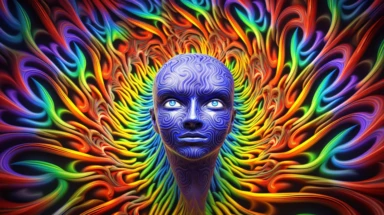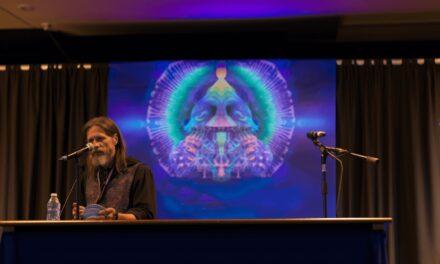In the early months of 2020, Harriet de Wit, esteemed professor of Psychiatry and Behavioural Science at the University of Chicago, initiated an intriguing experiment centered on the potential effects of MDMA on augmenting the pleasantness of interpersonal touch in healthy individuals. It was an ordinary Tuesday, marked by the diligent collection of data, when Mike Bremmer, de Wit’s research associate, brought to her attention an unexpected development.
A participant named Brendan had just concluded the double-blind trial, leaving a puzzling statement on his exit questionnaire: “Through this experience, I’ve managed to confront and address a profoundly personal issue. I encourage you to look up my name. I now understand my path forward.”
Bemused and slightly alarmed by the inscrutable nature of Brendan’s statement, de Wit and Bremmer decided to investigate. Upon an online search of Brendan’s name, they were taken aback by his past association with Identity Evropa, a white nationalist group, later renamed the American Identity Movement. Just two months prior, Brendan’s affiliation was publicized by local activists, resulting in a significant personal and professional fallout.
Professor de Wit’s immediate concern, understandably, was the potential repercussions of administering MDMA to an individual with such a divisive past. She urged Bremmer to seek clarification on Brendan’s statement, particularly his intentions post-trial. They needed to ascertain if his newfound resolve was a cause for alarm.
But what unfolded was entirely contrary to their apprehensions. Brendan, now transformed, was preaching a doctrine of love. “Nothing has any significance without love,” he revealed to an astonished Bremmer.
Two years since this unique episode, Professor de Wit remains astounded by the incident. “Isn’t it simply extraordinary?” she remarked, “The drug lived up to its reputation for inducing feelings of love, and it prompted a person to reassess and change his ideology – it’s truly staggering.”
As part of my ongoing exploration into MDMA’s scientific potential and therapeutic applicability I delved into the tumultuous journey of this once-stigmatized substance. MDMA, which had a brief stint as a therapeutic agent in the 70s and 80s before falling from grace, is now making a comeback. If accepted once more, MDMA-assisted therapy and other psychedelic interventions could revolutionize mental health treatment across the globe, offering novel approaches to trauma, substance abuse, depression, and eating disorders, among others.
But is it possible for MDMA to alter personal beliefs as well? While it’s clear that MDMA cannot singlehandedly eliminate prejudices or hateful ideologies, researchers are exploring whether it could nudge individuals predisposed to reevaluating their ideologies towards a paradigm shift. While it is powerless against societal-level drivers of prejudice and disconnect, on an individual scale, it may catalyze profound change. In certain instances, MDMA could potentially help individuals navigate through the haze of discrimination and fear that divides us, just as it did with Brendan.





